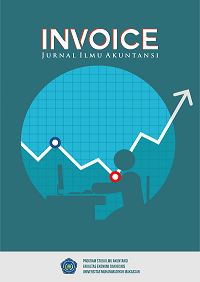Ethical Financing and Sustainability Practices in Islamic Banking Institutions
DOI: https://doi.org/10.26618/n4m0ne47
Abstract
This study examines the integration of sustainability and ethical financing principles in Islamic banking institutions and their implications for financial performance, corporate reputation, and customer trust. Despite increasing global attention to sustainable finance, there remains limited understanding of how Islamic banks adopt and operationalize sustainability practices while addressing challenges such as regulatory constraints, resource limitations, and market competition. Adopting an interpretive paradigm and a case study approach, this research collected data through in-depth interviews with institutional managers and staff, complemented by document analysis of sustainability reports and policy guidelines. The results reveal that Islamic banks that actively implement sustainability and ethical financing practices demonstrate improved profitability, enhanced corporate reputation, and greater customer loyalty. Moreover, transparent sustainability reporting and accountability mechanisms strengthen stakeholder trust and align institutional practices with the broader objectives of Islamic finance, such as social justice and environmental stewardship. The findings highlight the importance of developing innovative Sharia-compliant products that integrate sustainability values to attract socially and environmentally conscious customers. From a theoretical perspective, the study contributes to the growing discourse on the intersection between Islamic finance and sustainable development. Practically, it provides implications for policymakers and practitioners to strengthen transparency, accountability, and innovation in Islamic banking operations. Future research is recommended to explore the role of emerging technologies, including fintech and digital platforms, in enhancing sustainability practices within the Islamic banking sector.
References
Ahmadin, Ahmadin, Dahlia Pinem, Dandi Bahtiar, Ita Musfirowati Hanika, Hady Sofyan, and Atep Jejen. 2023. “Faktor-Faktor Yang Mempengaruhi Keputusan Investasi ESG (Environmental, Social, And Governance).” Innovative: Journal Of Social Science Research 3(5):9956–70.
Aini, Bunga Quratul. 2024. “Analisis Prinsip-Prinsip Environmental, Social and Governance (ESG) Pada Operasional BSI Stabat Kh Zainul Arifin.” Jurnal Ilmiah Ekonomi Islam 10(2):1455–65.
Ajustina, Fransiska, and Fauzatul Laily Nisa. 2024. “Eksplorasi Model Pembiayaan Perbankan Syariah Dengan Akad Musyarakah Yang Berkelanjutan.” Jurnal Rumpun Manajemen Dan Ekonomi 1(3):352–56.
Andini, Windi Yuni, Syarifn Hafif Syarif, Shafiyah Mujahidah Azzahra Shafiyah, and Afif Farhan Ramadhan Afif. 2024. “Integrasi Prinsip Ekonomi Islam Dalam Penerapan Ekonomi Hijau Di Indonesia: Menuju Pembangunan Berkelanjutan.” Journal of Economics and Business 2(2):247–54.
Arkaan, Dhiya Ulhaq, and Eka Wahyu Hestya Budianto. 2024. “Does Financial Ratio Have an Impact on The Growth of Sharia Banking in The World.” Jurnal Tabarru’: Islamic Banking and Finance 7(1):299–309.
Atikah, Nila, and Sayudin Sayudin. 2024. “Analisis Perkembangan Pasar Modal Syariah: Tantangan Dan Peluang Dalam Investasi Berbasis Prinsip Syariah.” Jurnal Inovasi Global 2(1):204–13.
Azhari, Devi Syukri, Zihnil Afif, Martin Kustati, and Nana Sepriyanti. 2023. “Penelitian Mixed Method Research Untuk Disertasi.” Innovative: Journal Of Social Science Research 3(2):8010–25.
Fahlevi, Muhammad Fauzan. 2024. “ANALISIS TANTANGAN DAN PELUANG PERKEMBANGAN GREEN SUKUK DI INDONESIA.” Journal of Syntax Literate 9(10).
Ika Nurul Qamari, Creator, M. E. Christantius Dwiatmadja, and S. E. Ahyar Yuniawan. 2019. “TRANSFORMATIVE INTERACTION CAPABILITY, ANTESEDEN DAN KONSEKUENSI: SEBUAH PERSPEKTIF TEORI TIP (TIME, INTERACTION, PERFORMANCE).”
JULIA, KHAIRUN NISA. 2023. “OPTIMALISASI E-BUSINESS DALAM MEWUJUDKAN GREEN BANKING DI PERBANKAN SYARIAH SECARA BERKELANJUTAN (Studi Pada Bank Syariah Indonesia KCP Kotabumi Periode-).”
Kontesa, Emelia, Zico Junius Fernando, and Sawitri Yuli Hartati. 2023. “Mewujudkan Perbankan Berkelanjutan Dengan Green Banking: Aspek Hukum Pidana Dalam Perlindungan Lingkungan.” Bina Hukum Lingkungan 8(1):1–22.
Maulidizen, Ahmad. 2024. “Sistem Perbankan Syariah.” Ekonomi Pembangunan Islam 79.
Mufidah, Ana, Novi Puspitasari, Khanifatul Khusna, and Imam Suroso. 2024. “Pendampingan Pembelajaran Metode Penelitian Gabungan (Mixed Method) Di IAIS Lumajang.” Jurnal Pengabdian Masyarakat Akademisi 3(1):53–69.
Munir, Muhammad Misbakul. 2023. “Pemberdayaan Ekonomi Berlandaskan Maslahah Dalam Hukum Islam.” Jurnal Kajian Islam Modern 10(01):34–45.
Mutoffar, Muhamad Malik, M. M. ST, Ir Yudi Limbar Yasik, S. T. Ilham, M. T. Rina Indrayani, M. M. SE, Anggit Fuadi, and S. Sos. 2024. “Pedoman Praktis Manajemen Sumber Daya Manusia: Strategi Terbaik Meraih Sukses.”
Pertiwi, Tanza Dona, and Sri Herianingrum. 2024. “Menggali Konsep Maqashid Syariah: Perspektif Pemikiran Tokoh Islam.” Jurnal Ilmiah Ekonomi Islam 10(1):807–20.
Rowi, Muhamad Rowi Muhamad, A. Abdurrahman, Sinta Thia Anggraeni, Uswatun Hasanah, M. Marwiyah, and Muhammad Abuzar. 2024. “Navigating Business Ethics: Strategies for Overcoming the Dilemma of Profit and Compliance in Murabahah Transactions.” Maktabah Reviews on Sustainable Development Goals 1(01):73–84.
Salsabila, Shafa, Aryan Danil Mirza BR, and Yuztitya Asmaranti. 2025. “KOMPARASI ANTARA AKUNTANSI SYARIAH DAN KONVENSIONAL BERDASARKAN IMPLEMENTASI PADA MASYARAKAT: STUDI LITERATUR.” Jurnal Riset Dan Pengetahuan Nusantara 6(1).
Suhendi, Suhendi, Neng Reni Anggia Damayanti, and Nurul Izzah Ravelina. n.d. “Etika Bisnis Islam: Implementasi Pada Perbankan Syariah.” Jurnal Pendidikan Tambusai 7:29226–37.
Wati, Risma, and Muhammad Iqbal Fasa. 2024. “Manajemen Risiko Likuiditas: Jaminan Keberlanjutan Dan Ketahanan Bank Syariah Di Era Krisis Moneter.” MAMEN: Jurnal Manajemen 3(4):389–402.
Downloads
Published
Issue
Section
License
Authors who publish with Invoice: Jurnal Ilmu Akuntansi agree to the following terms:
-
Copyright Ownership
The copyright of all articles published in this journal remains with the author(s). However, the authors grant Invoice: Jurnal Ilmu Akuntansi the right of first publication with the work simultaneously licensed under a Creative Commons Attribution 4.0 International License (CC BY 4.0). This license allows others to share, copy, redistribute, adapt, and build upon the work for any purpose, even commercially, as long as proper credit is given to the original author(s) and the source. -
Licensing and Access
Invoice: Jurnal Ilmu Akuntansi provides immediate open access to its content on the principle that making research freely available to the public supports a greater global exchange of knowledge. All published materials are available freely without subscription or payment and can be accessed, downloaded, and reused by any user provided that appropriate attribution is given. -
Permission for Reuse
For uses not covered by the CC BY 4.0 license, such as commercial reprints, translations, or any form of adaptation without clear attribution, users must obtain written permission from the editorial team. Requests for such permissions can be directed to the editorial office at: [invoice@unismuh.ac.id]. -
Plagiarism and Originality
Authors are responsible for the originality of their submissions. All articles are screened for plagiarism using appropriate tools before acceptance. Manuscripts found to contain unoriginal content or infringing materials will be rejected or retracted as per journal policy.















